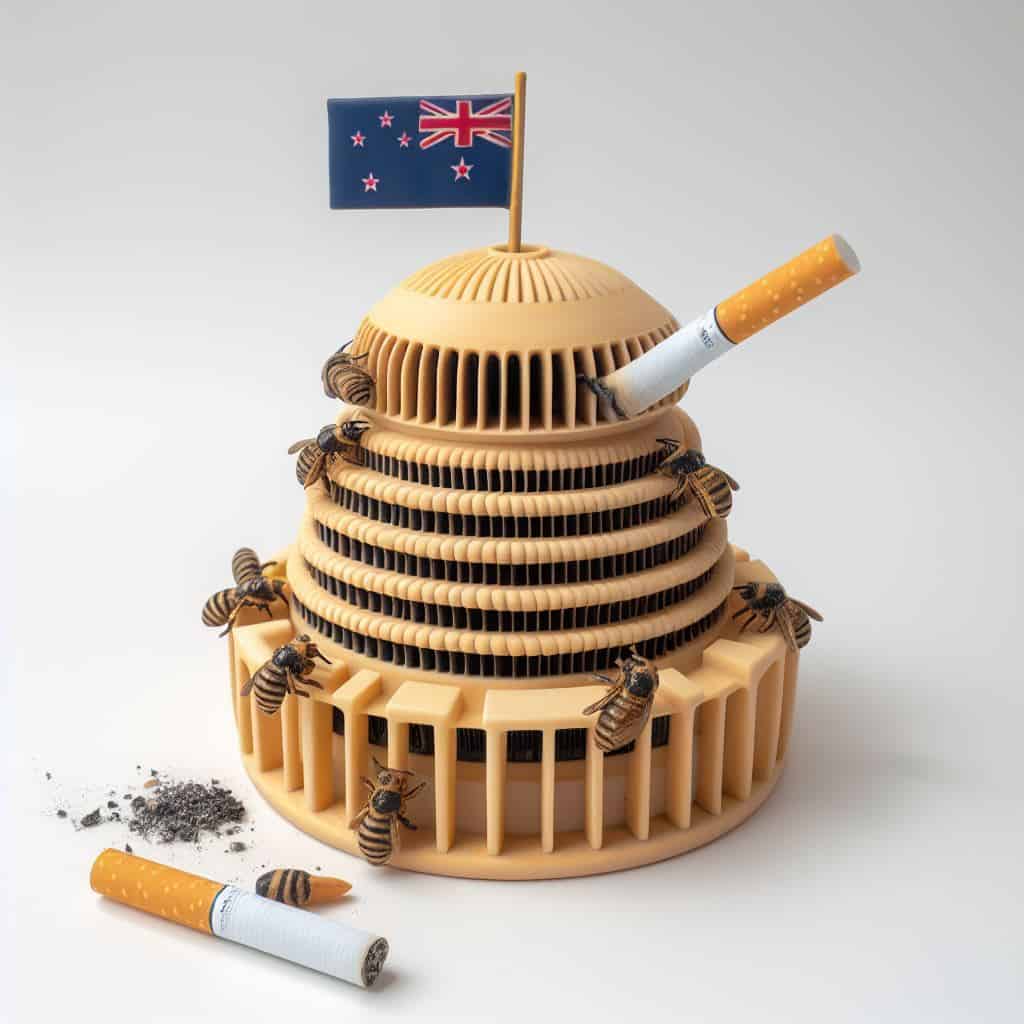PAT PILCHER is sick and tired of opinionated and biased coverage of political issues and urges us to learn how to find the factual.
 Is it just me, or is election time in NZ truly awful? Social media becomes even more feral, and innocuous family discussions turn into heated discussions as political disagreements become poorly informed disagreements. In short, I’m utterly tired of politics, fatigued by people using half-baked and poorly informed opinions to back their flavour of tribalism. Most of all, I’m even more tired of seeing media hit jobs on political parties that are usually little more than the writer’s reckons, disguised as actual news and factual reporting.
Is it just me, or is election time in NZ truly awful? Social media becomes even more feral, and innocuous family discussions turn into heated discussions as political disagreements become poorly informed disagreements. In short, I’m utterly tired of politics, fatigued by people using half-baked and poorly informed opinions to back their flavour of tribalism. Most of all, I’m even more tired of seeing media hit jobs on political parties that are usually little more than the writer’s reckons, disguised as actual news and factual reporting.
This isn’t the first time I’ve written about the dire state of media in New Zealand. Still, it is the first time its consequences have become so overtly apparent.
Support Witchdoctor’s ongoing mission to bring a wealth of new and historic music interviews, features and reviews to you this month (and all year round) as well as coverage of quality brand new, contemporary NZ and international music. Witchdoctor, entertainment for grownups. Your one-off (or monthly) $5 or $10 donation will support Witchdoctor.co.nz. and help us keep producing quality content. It’s really easy to donate, just click the ‘Become a supporter’ button below.
Why is the preponderance of unbalanced/sensationally framed or factually incorrect reporting around the various political parties so important?
The media’s role in any functioning democracy is to do several things. Firstly, as the Fourth estate, the media should hold the other three estates (government, church, gentry) accountable. Doing this requires the media to research and report accurate information to the public. Doing this involves the media’s second role: keeping the public informed through crafting balanced and factually useful stories framed with as little bias as possible.
 In an ideal world, this would see the public getting all sides of a story and making up their own minds on an issue once they have all the facts. Sadly, in New Zealand now, this hardly ever happens. In an election year, shoddy journalism can have huge impacts on the lives of New Zealanders for quite some time going forward.
In an ideal world, this would see the public getting all sides of a story and making up their own minds on an issue once they have all the facts. Sadly, in New Zealand now, this hardly ever happens. In an election year, shoddy journalism can have huge impacts on the lives of New Zealanders for quite some time going forward.
It isn’t all that unusual to see big-name journalists whose faces are often emblazoned across the back of buses and other adverts taking a punt on a political issue with their own reckons instead of facts. With monotonous regularity, they seem to fail to keep their opinions and views out of things. Their stories become little more than ranty opinion pieces dressed up as factual news. Don’t get me wrong, I have no issue with opinion-piecea. They can make for entertaining and sometimes enlightening reads. Still, passing them off as hard, factual news does everyone a disservice.
Framing is another huge issue. How a story is positioned plays a huge part in informing the reader. Good journalism should tease apart the big issues and break them into explainable chunks without adding extra hype or drama. Political editors should never take sides in an election year, as balanced, unbiased reporting is vital. Sadly, this seems to be falling by the wayside as many media outlets echo their favourite political parties’ talking points, packaged up in increasingly sensational headlines and soap opera-style reporting to pull readers in. Making matters worse, political editors in some of our major news outlets appear to have already taken sides and yet are keeping their jobs. This just isn’t good enough.
 While a clever headline and amusing story can be useful, and many publications need readers to generate online advertising revenues by clicking to read stories, facts, balance, impartiality, and accuracy should never get trampled.
While a clever headline and amusing story can be useful, and many publications need readers to generate online advertising revenues by clicking to read stories, facts, balance, impartiality, and accuracy should never get trampled.
The upshot of this style of shoddy journalism in New Zealand is that the public is sometimes spectacularly uninformed/misinformed, resulting in a nasty cocktail of anger, apathy and ignorance that distorts public debate. Don’t take my word for it, though. If you need proof, simply ask friends and family how much they know about a particular political issue or party, and you’ll probably be shocked by their ignorance.
The importance of an informed voting public simply can’t be emphasised strongly enough in an election year. Informed voters typically vote based on a political party’s policies, track record and people. This should (at least in theory) help the best party get elected, allowing New Zealand to prosper and remain a great place to live. Instead, media pundits inflict their emotive, shallow and poorly informed reckons on an unquestioning public. It’s little wonder that many people are confused about who they’ll vote for.
 Given the money involved in clickbait-style headlines, it’s unlikely that the media will change their tune any time soon, so what can be done?
Given the money involved in clickbait-style headlines, it’s unlikely that the media will change their tune any time soon, so what can be done?
Perhaps the best way of decoding the messy mash-up that is New Zealand MMP-style politics is to employ some critical thinking and do your own research. Look for reputable sources to find out about a political party’s policies. Going to the media might give you quick and easy-to-find answers. Still, the simple truth is that a good chunk of New Zealand’s media cannot be trusted to publish impartial, accurate and balanced political information.
Political party websites are one of the better sources for good oil on political policies. Most have their policies or policy directions laid out. While they’ll almost certainly have their own spin, the information they publish is at least accurate. For more impartial information, The Spinoff has teamed up with Policy.nz to provide an unbiased guide to political parties, their policies and people. Burning issues such as the environment, incomes, and employment are all covered in an easily readable and informative layout that makes for easy comparisons between all parties.
Equally useful is knowing how to spot low-rent political stories. Start with the headline. Warning bells should be ringing if it is more emotive than factual or sensationalising an issue/politician or party. Sensational headlines may grab your attention, but they’re usually more about getting your clicks than informing you. Then there’s the content of the story. Does it use reputable and reliable expert sources to back up its assertions, or is it merely the writer having a rant? Facts inform readers. Rants, not so much. Lastly, does the story cover all sides of the issue? Are multiple views and perspectives presented to allow you to form your own opinion, or does the writer cherry-pick whatever facts support their views?
Knowing where to find the information you need and how to spot low-quality journalism isn’t all that difficult, and it might give you an informed and factually correct basis at election time.










